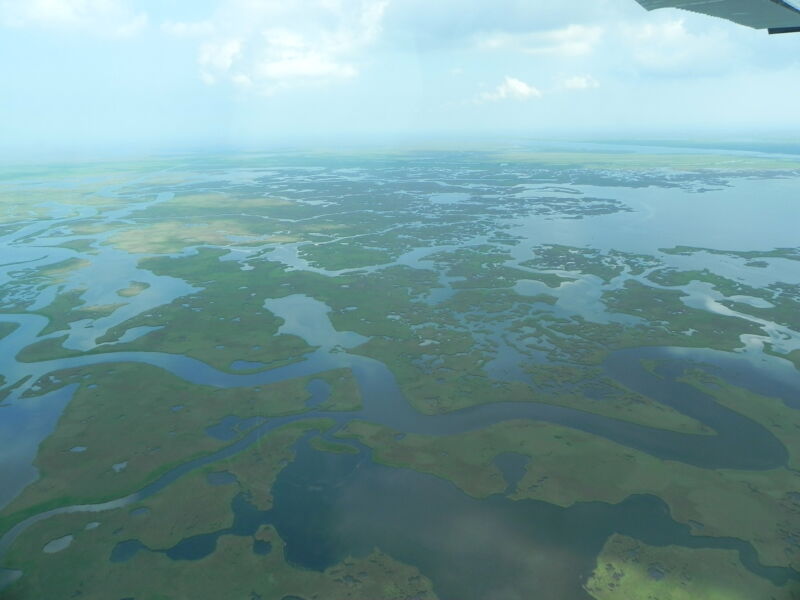New data indicates the Mississippi Delta is on borrowed time

Enlarge / The drowning of Louisiana's wetlands is "inevitable." (credit: Louisiana Sierra Club)
Since 1932, coastal wetlands in Louisiana have declined by about 25 percent. At its fastest, the decline was around one football field lost every 34 minutes; at its slowest, every 100 minutes. The Pelican State is losing ground faster than any other state in the contiguous United States. And those losses reach far beyond its borders: coastal Louisiana plays a crucial role in fisheries, shipping, and oil and gas production.
In recent years, the wetlands have been faring better than in previous decades, possibly because there hasn't been a Katrina-level storm in that time. But a study published last week in Science Advances suggests that this is a temporary reprieve. With sea levels rising as rapidly as they are, the wetlands, including the famed Mississippi Delta, are likely to be gone in a matter of decades-or, at most, centuries.
Tipping pointCoastal Louisiana is currently home to 15,000 square kilometers of marshland, a critical ecosystem held together by a complex, interlocking set of processes. The tide washes in; plants grow and die; sediment is brought in by rivers and builds up. If the system changes-for instance, if sea levels rise rapidly-the marsh changes, too.
Read 10 remaining paragraphs | Comments